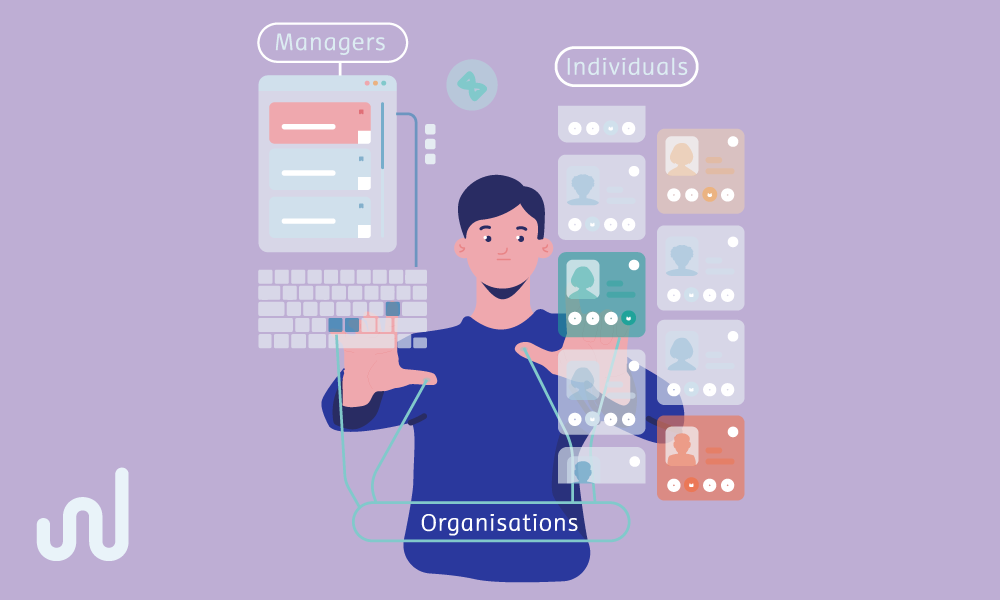Mass personalisation can help to improve the employee experience of all employees
Mass personalisation can help to improve the employee experience of all employees
Many businesses focus their employee experience programmes on full-time employees (FTEs) at the expense of other types of employees (the extended workforce or extended talent). But extended workforce is also more likely to thrive when organisations can offer them a good employee experience. Considering that many organisations increasingly rely on an extended workforce, why does extended workforce not get equally involved in EX programmes? All employees should be able to expect employers to create a great experience at work and look after their wellbeing. From a Diversity, Equity & Inclusion perspective, the exclusion of the extended workforce from people programmes that support a better employee experience, wellbeing and development seems even less logical. So why does it happen?
Companies may be hesitant to include extended workforce because of the additional complexity that it adds to their EX programmes. However recent advancements in technology and behavioural science have led to the development of Employee Experience Management Systems (ExMS) that can open the door wide to EX programmes for all employees. With the help of an ExMS, HR can design more complex EX programmes for more diverse groups of employees, that still deliver results, are easy to manage and make all employees feel they are listened to.
Mass personalisation to improve people and business outcomes
If personalisation refers to approaching each employee as a unique person with unique characteristics, then mass personalisation refers to using technology to do so efficiently for hundreds or even thousands of employees. Welliba’s ExMS (called EX+) was designed to measure and manage employee experience by analysing how employees experience their work and life as a result of the interaction between their individual characteristics and their environment. Through interaction with EX+, employees can gain powerful insights into their mindset, personal characteristics, unique working contexts, and the dynamic relationships between who they are and the contexts they work in. This helps organisations develop a unique and new understanding of what shapes the individual experiences of their people.
Great EX programmes are based on understanding how people differ and knowing what each person, or group of people, values. Welliba’s EX+ technology can help uncover these factors, which is a crucial step towards an effective worker experience strategy. For instance, we may expect that the extended workforce is more likely to value flexibility and autonomy than full-time employees. Or that the extended workforce is less likely to have the same financial security as FTEs and less likely to have access to the typical benefits that FTEs get. But it is key that organisations refrain from basing their people programmes on anecdotal evidence. Using scientifically validated tools to measure and manage employee experience will almost always lead to better data and better outcomes. While it may not be possible to address all issues in all areas, being aware of them is key.
Mass personalisation can also be a powerful way to immediately increase the performance and engagement of all talent in an organisation. EX+ does not only provide insights to people leaders and HR, but it also directly provides new insights to employees who share their data with the platform. This allows them to gain a more in-depth understanding of what boosts or blocks their own experience at work. Giving them ownership of their experience makes them more likely to actively participate in the improvement process. EX+ also provides personalised advice to help workers leverage what is boosting their experience, or develop in areas that may be blocking it. Employees are also pointed towards internal or external development resources that can help them to thrive at work.
Improving the EX of the extended workforce is good business, now and in the future
An extended workforce with a good employee experience will get more work done. Their onboarding will be more effective, they are more likely to collaborate successfully with other employees, their wellbeing and engagement will be higher, and they are more likely to keep working for the same organisation. In an economy where talent is in high demand, this can help organisations gain an advantage: if the extended workforce finds working within your organisation to be a superior experience to working with other clients, they may prioritise the work they do for you and be more ready to take on additional work when opportunities arise. Additionally, they can become advocates for your organisation to other fellow contractors or potential employees. A good employee net promoter score (eNPS) from your extended workforce is a powerful asset in a tight talent market. Understanding what is driving their great experience will make you a better employer -for all your talent- now and in the future.
Despite all these potential benefits, the employee experience of the extended workforce does not often get the attention it deserves when EX programmes are designed. Designing an EX programme exclusively for FTEs may seem to make it more manageable, given the additional complexity of including the extended workforce with more diverse experiences and expectations. This may indeed have been the case when measuring EX and managing EX programmes required a lot of time and resources from HR. But the benefits of mass personalisation, as offered by advanced EX platforms, make the business case for including all the talent in your organisation in your EX programmes increasingly hard to ignore.










